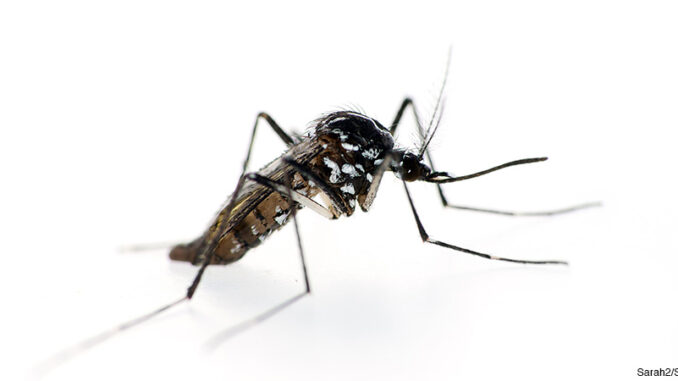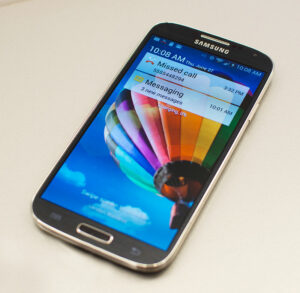
Paralyzed Man Regains Sense of Touch
Nathan Copeland, who is 30 years old and has been paralyzed for the last 12 years, has just become the first person to feel the sense of touch in a prosthetic limb.
For many years, the technology has existed to allow people to control robotic arms using just their minds. But until now, they did not have the ability to actually feel the things they were touching.
Because Copeland’s spinal cord was severely damaged in a car accident, he could not move any of his limbs. However, researchers at the University of Pittsburgh Medical Center have made it possible for sensation to bypass his spinal cord altogether. First, four electrodes–smaller than grains of sand–were implanted in the part of Copeland’s brain which responds to touch in the hand and fingers. When the researchers touched the fingers of the robotic arm, it sent signals directly to the electrodes, allowing Copeland to actually “feel” the sensation of touch. He was blindfolded during the experiment, and was able to correctly identify the location of every touch.
President Obama, who visited Pittsburgh last Thursday for a conference on science and technology, successfully shook hands with Copeland. Even though mind-controlled robotic arms are still too expensive and unreliable for use in the general public, the study, published the day of Obama’s visit in Science Translational Medicine, provides a first step in the important goal of enabling prosthetic limbs to truly mimic human ones, which has the potential to help thousands of disabled and paralyzed people feel touch again.
What Do You Think? Imagine that you are unable to move your limbs. Would you allow scientists to implant electrodes directly into your brain, the way they did with Nathan Copeland, if it meant that you might be able to feel sensation in your limbs again? Why or why not?
Ambassador Wonder Woman?
Last Wednesday, the United Nations appointed the comic book heroine Wonder Woman to be the new honorary ambassador for women and girls. The appointment will become official at an event on October 21, Wonder Woman’s 75th birthday, at the United Nations headquarters in New York.
This appointment marks the launch of the UN’s global campaign for gender equality and empowerment for all women and girls. Wonder Woman’s image will be used on social media to promote important messages about gender-based issues.
This is not the first time that the United Nations has honored a cartoon character. In 1998, Winnie the Pooh became the honorary Ambassador of Friendship; in 2009, Tinker Bell became the honorary Ambassador of Green; and earlier this year, characters from Angry Birds served as honorary ambassadors for the International Day of Happiness.
However, the UN has received a good deal of criticism over their most recent choice. The Wonder Woman announcement came about a week after the UN rejected all seven female candidates for Secretary General (its highest diplomatic office) and selected a man, Antonio Guterres, instead, ignoring pressure from dozens of countries to choose a woman. Furthermore, the UN has never had a female diplomatic head, and last year, nine out of ten senior leadership jobs went to men. Now, with this new appointment, men will continue to lead the UN for at least another five years.
Dig Deeper Using the Internet, research the seven female candidates recently passed over for UN Secretary General. Select one of the candidates you have researched and write a short essay describing why you feel she would have made a good choice for Secretary General. Make sure to give evidence to support your point of view.
Samsung Stops Production of New Smartphones

Last Tuesday, Samsung Electronics, the world’s largest smartphone maker, stopped production of its Galaxy Note 7 smartphone. In the less than three months since it has been available to the public, the Note 7 has caught fire more than 100 times in the United States alone. In September, Samsung recalled roughly 2.5 million of the phones due to batteries that overheated and exploded. They issued replacement phones, but the replacement phones had many of the same problems, prompting the company to halt production and sales of the Note 7 altogether.
All phone manufacturers are required to have their batteries tested for safety at a certified lab. However, Samsung is the only manufacturer who uses an in-house facility to test its batteries. On one hand, it is acceptable for a company to want to use its own lab in order to protect trade secrets. On the other hand, letting manufacturers test their own batteries could present a conflict of interest. Apple Inc. and other similar companies use a third-party lab for battery testing.
The decision to stop manufacturing the Note 7 will cost Samsung $5.3 billion in operating profit. More importantly, many wonder if the company will ever be able to fully regain the trust of consumers after this incident.
What Do You Think? Would the fate of the Note 7 affect your decision to purchase a product from Samsung Electronics in the future? Why or why not? Remember to use evidence to support your position.
Zika Virus Spreads in Florida
On October 13, Florida officials announced a new area of Miami-Dade County where the Zika virus has been transmitted. The area is one square mile in size and includes Miami’s Little Haiti neighborhood. Five people have contracted the virus in this latest outbreak: three who live in the area, and two who work there.
The Zika virus causes severe birth defects when pregnant women become infected, and can also cause rare but serious neurological damage. This is the third established outbreak in Miami-Dade County. Florida is the only state where the virus is transmitted locally, both because it is home to the Aedes mosquitoes that spread the virus, and because it receives a lot of travelers from other areas of the globe where Zika is spreading. Over 1,000 cases of Zika infection have been verified in Florida (174 transmitted locally, the remainder carried in by travelers), including 106 pregnant women.
Florida governor Rick Scott has issued a plea for federal funding to help combat the spread of the disease. So far, the mosquito population in the other infected areas of Miami has been largely controlled by aerial spraying with Naled, a controversial insecticide. In the meantime, the Center for Disease Control has issued a list of safety guidelines for people living in or travelling to the area. The CDC has asked that people protect themselves by covering up and using bug repellent; that pregnant women and their partners postpone travel to Miami-Dade County; and that every pregnant woman in the U.S. be assessed for possible Zika exposure at every prenatal care visit.
